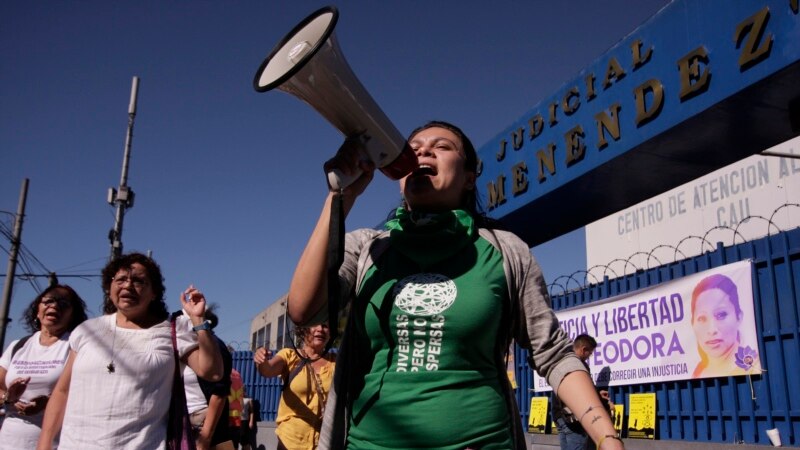
The population of women in prison has doubled in the last two decades in Latin America due to the tightening of policies to combat drug trafficking; Women represent 8% of the prison population in the region, but receive a “disproportionate” penalty, given the “low level of participation in the criminal chain.”
Those are the findings of the study ‘Women deprived of liberty in the Americas’, published this Monday by the Inter-American Commission on Human Rights (IACHR), based in Washington.
The research highlights that “women detainees face disproportionately serious effects due to the lack of attention to the specific needs derived from their gender.” The investigation also delves into the conditions of the prison population in northern Central America.
On June 20, 46 women perished in a jail near Tegucigalpa, Honduras, in what is considered the worst massacre of female inmates on the continent. President Xiomara Castro described the event as a “monstrous” act perpetuated by a rival gang, “in full view and patience of security authorities”, which led her to dismiss the Minister of Security, Ramón Sabillón, and to announce “drastic measures”. to prevent more violence inside prisons.
The IACHR study also states that female imprisonment also has an impact on the people under their care, “considering that women are the ones who generally assume care tasks and the majority of incarcerated women are mothers.”
The investigation suggests that there is a “lack of gender perspective to address the problem”, by not considering -in most countries- alternative measures to prison, in case of minor crimes related to drug trafficking, only Costa Rica and Bolivia They have made progress with some programs.
The report, according to the IACHR, constitutes the first regional study to offer a diagnosis of the situation and open a dialogue in the Inter-American System based on the findings that lead to “review” the measures of the countries in “criminal and prison policy that affect the rights of women.
The research offers recommendations for “the adoption of measures to reduce female imprisonment, as well as incorporating a gender perspective in prison policies with the purpose of guaranteeing women’s rights.”
Likewise, it highlights “the relevance of applying alternative measures to prison that allow both prosecuted and convicted women to remain free, in view of the disproportionate effects of their imprisonment.”
Another worrying aspect for the researchers is the “shortage of social reintegration policies” for the prisoners once they are released from prison, given the stigma generated by their stay in prison; this presents them with greater difficulties than men when released from prison.
The investigation also proposes “adopting measures” that can be incorporated into the trial of women for a “gender perspective” and above all promoting reforms to guarantee “alternative measures to prison.”
In the last 20 years, the incarceration of women has increased by 56.1% while the general prison population in the region grew by 24.5% in all of Latin America.
Connect with the Voice of America! Subscribe to our channel Youtube and activate notifications, or follow us on social networks: Facebook, Twitter and Instagram.






![[Img #74664]](https://thelatestnews.world/wp-content/uploads/2024/12/James-Watson-The-controversial-genius-behind-the-double-helix-150x150.jpg)







